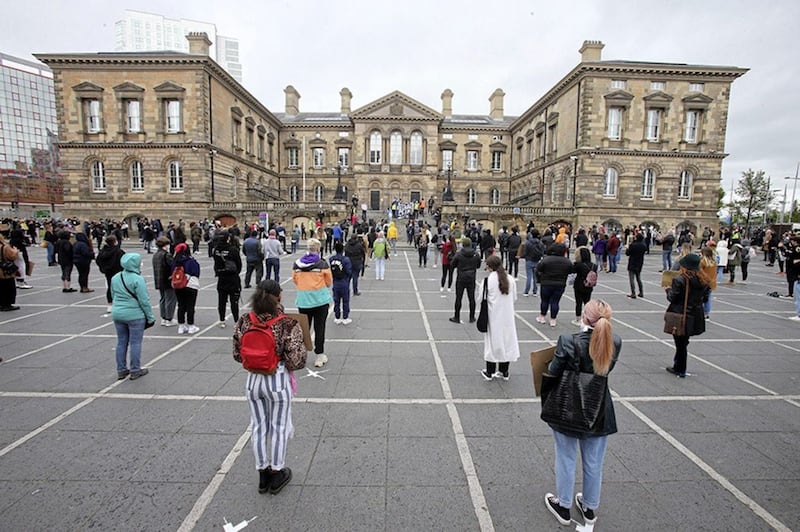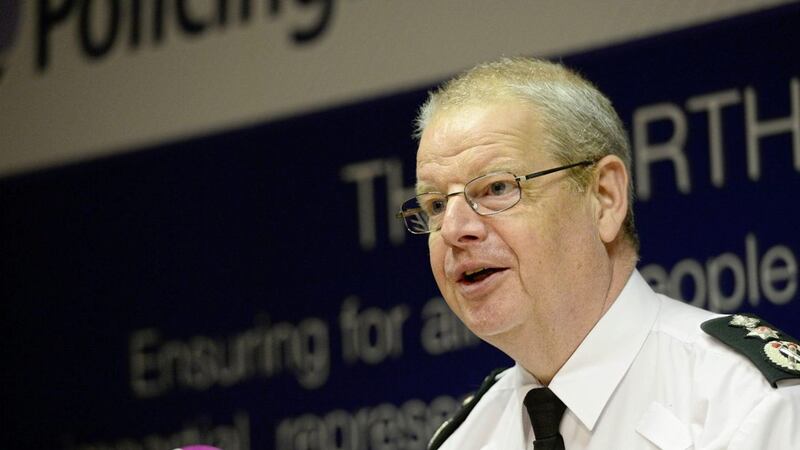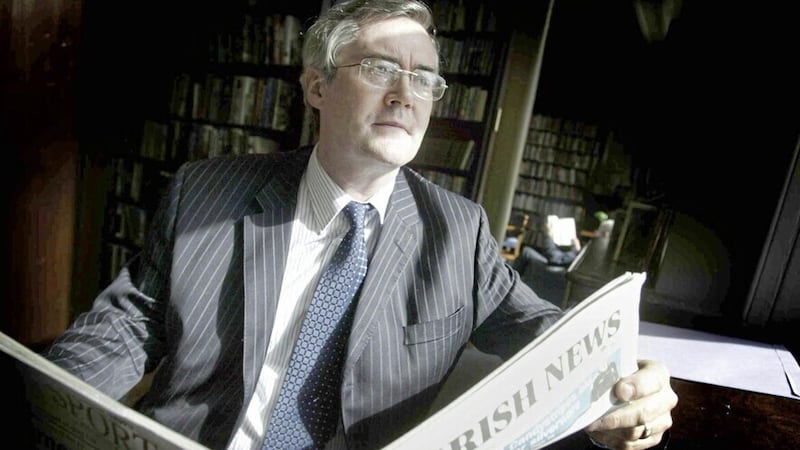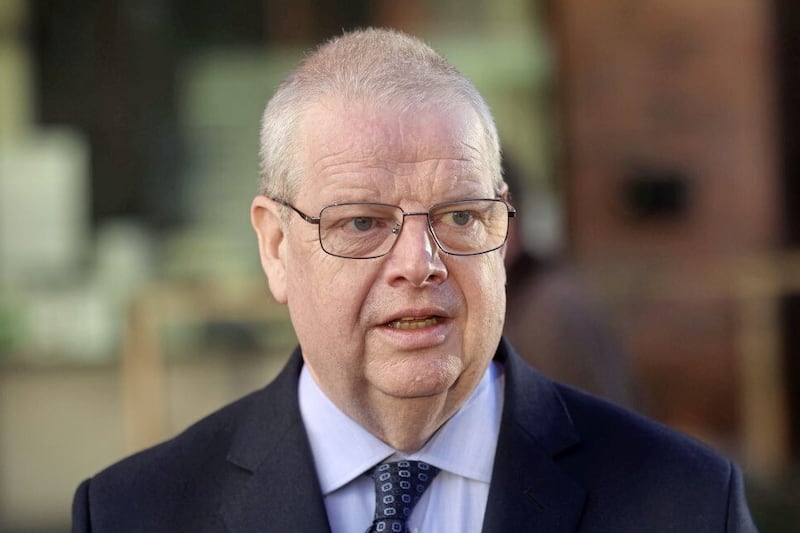CHIEF Constable Simon Byrne has acknowledged the PSNI's engagement with ethnic minorities "has room for improvement", after its controversial handling of anti-racism protests this summer.
In his report to oversight body The Policing Board, Mr Byrne admitted: "It is clear to me that our policing of sensitive and contested matters such as gatherings and protests has caused upset, hurt and frustration for some."
He described that as a "genuinely held view... personal to those involved" and insisted: "I recognise the depth of feeling in some quarters."
Mr Byrne and the PSNI have been criticised for its continued pursuit of the peaceful Black Lives Matter demonstrators under the legislation designed for criminal gangs, despite warnings from prosecutors it was "a highly exceptional course of action".
Hours before the release of a damning Policing Board report concluding their approach "was not lawful", officers were continuing to interview the protestors at the June 6 event under the serious organised crime legislation.
The board's human rights adviser John Wadham said the approach "sent the wrong message to protesters and damaged the reputation of the PSNI and the confidence of some members of the public".

The chief constable acknowledged "upon reflection, and drawing upon my experiences from policing in London, Liverpool and Manchester, I believe our structured engagement with the diverse communities across Northern Ireland has room for improvement".
Mr Byrne said he and his senior team are still "working our way through (the report) in a systematic and structured way".
However, he told the board that the PSNI will change its approach, and will establish a new Community Relations Taskforce to help the service improve its policing of ethnic minority communities.
"I want to reassure the Policing Board and all communities across Northern Ireland, that I will be prioritising community engagement in 2021 to seek to improve trust and confidence amongst those that were particularly affected by these events and others who may feel isolated or marginalised.
"To that end, I will be establishing a new Community Relations Taskforce led by Assistant Chief Constable Mark McEwan.
"It will seek to include membership from across communities, academia and critical friends, as well as our professional leads and our staff associations and networks.
"The aim will be to build a much better appreciation of the needs and concerns of the many diverse communities across Northern Ireland and use that to inform our policing style and our operational approach."
Mr Byrne insisted the PSNI is "an open, reflective and learning organisation" and the Board's feedback "is invaluable in shaping our thinking and tactics for future events and operations".





